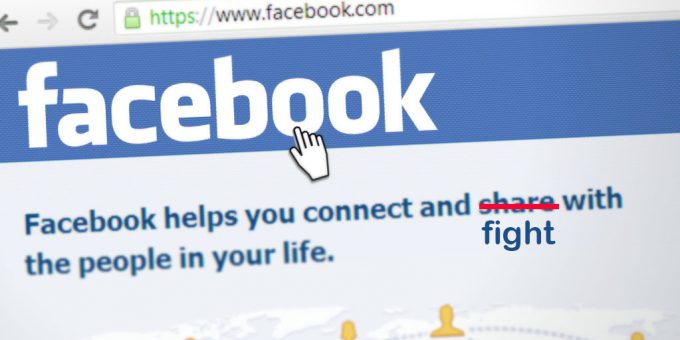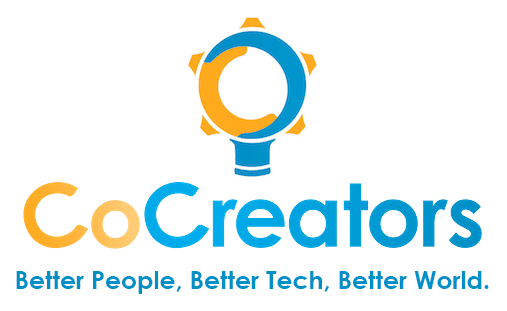
Does your Facebook feed feel like digital Fight Club? Let’s break the First Rule and talk about it.
How many times have you been on Facebook only to see an inflammatory post that you just felt compelled to comment on? The post might not have been totally off in its reporting but the nuance of it just seemed to miss the mark. So, against your better judgment you, with the best of intentions try to correct the misinformation and then… all Facebook Hell breaks loose.
You end up in some fight that goes on for hours or days or longer. Sarcasm is exchanged, shots are fired, meme volleys are launched – a band of Internet trolls join in. Finally someone ends up blocked. Your friends think you are a jerk – and often the feeling is mutual.
Even if this hasn’t happened to you – you have almost certainly seen it happen to others. Aside from all of the things people love about Facebook – like broadened communication, mass amounts of birthday wishes and endless narcissism… hmmpt… I mean selfies – Facebook can often feel like the digital version of Fight Club.
But if this kind of digital MMA battle has happened to you – truth be told – it might not be completely your fault. And surprisingly enough it also might not be the fault of the now deemed ass-hat friend that you were just fighting. Why? Because Facebook’s system is setup to encourage you to fight with your friends.
To understand how this is the case – you need to have a basic understanding of how Facebook makes money. Facebook makes revenue by selling ads to companies that want to sell you their stuff. So when you log into Facebook their goal is to get as many relevant ads in front of you as possible so that they can cash in.
All this happens very quickly in real time. You get on Facebook and they read all of the info they can from your browser. By this and the data that you already voluntarily gave them permission to when you signed up – they have a pretty detailed profile of whom you are and what kinds of things you like. They then use all of this data to feed you ads that make them money.
It is obviously more complicated than I am about to describe but, in short, Facebook feeds you ads by rapidly sending your data to servers that then compete on behalf of product suppliers to bid on pitching you their ad. These bids are fractions of a cent but they all add up. The person who won the bid – well, that’s whose ad you are seeing in your browser.
Have you ever had the experience of looking up a product online and then suddenly, and creepily, Facebook puts an ad up in front of you while you are on Facebook? That happened because they are using the data from your browser. And now they have targeted you for a potential product sale.
Now don’t get me wrong, in my opinion, there is nothing wrong with Facebook making money from providing you a product. You are voluntarily choosing to use Facebook. But the problem that we need to acknowledge is that the way the Internet is currently incentivized is through conflict methodology.
If a site is making ad revenue off of its viewers and how long they stay on a web page then it behooves them to write click-bait styled titles and rabble-rousing posts in order to get their readers to disagree.
Have you noticed that there are more conflict-oriented sites on the Internet than ever before? How you noticed that people are fighting with each other more and more? Have you seen the political climate in the United States lately? It’s not an accident – people are making money off of you.
So how is Facebook at fault for this? Well, it isn’t directly their fault if they aren’t the ones creating the conflict-oriented content. But let’s not fool ourselves into believing that they don’t know that this is happening. They have made a point to generally stay out of determining what is virtue-driven and what isn’t on their site – except where Congress intercedes.
Yes, it is true that Facebook has policies and penalties around hate speech and fake news but is also the case that most people claim that these rules aren’t clear enough. Beyond that, no one has breeched the question as to if Facebook has an ethical
responsibility to ban posts that incite conflict methodology. That may sound complicated but Facebook already bans people for all sorts of minor offenses –often without providing recourse for the violator to even understand clearly what rule they broke or the parameters of the rules.
According to Wired Magazine, Facebook made 10 billion dollars in profit in the first half of this year alone! Cue the Dr. Evil pinky finger because you would think that some of that money might be able to go into devising ethics that help keep the peace.
But don’t kid yourself – Facebook and conflict-oriented sites don’t want you to stop fighting – because when you fight they are profiting wildly.
As featured on SuperPosition





























